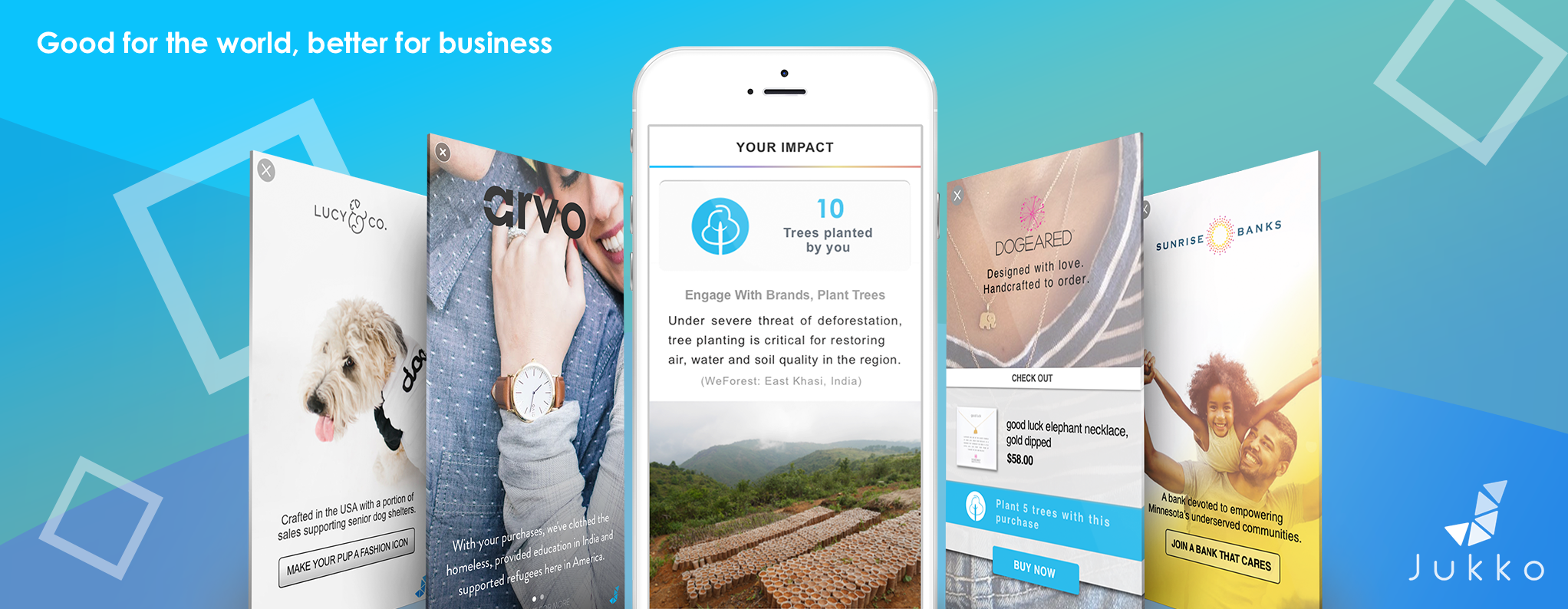Welcome to the Jukko developer SDK documentation. Follow our step-by-step instructions to integrate Jukko and start monetizing while converting your app into a catalyst for social impact today!
If you have any questions during the integration process, you can reach us at devs@jukko.com and we'll get back to you ASAP. Thanks for joining our movement to create a better world and a better way of doing business.
Add our latest pod to your project's podfile:
pod 'JukkoSDK-2.0.1'
Import to access public API.
Swift
import JukkoSdkObjective-C
@import JukkoSdk;Jukko SDK support devices starting with iOS 10.0.
Initialization has to be done before Jukko SDK can be customized and launched. The method will need an API key. The API key can be generated in the dashboard after registration. You can register on Jukko dashboard.
After registering, you can are ready to initalize() with our API:
Swift
JukkoSdk.shared.initialize(apiKey: "API_KEY");Objective-C
[JukkoSdk.shared initializeWithApiKey:@"API_KEY"];Next, you can show an ad by calling showAd() method:
Swift
JukkoSdk.shared.showAd(){(event) in
// Do your stuff
}Objective-C
[JukkoSdk.shared showAdWithCompletion:^(AdClosedEvent * event){
// Do your stuff
}];-
Completion block of showAd function will be executed every time when you call showAd function: even when called during another showAd call or facing frequency limit.
-
SDK's WebViewController is presented modally by
presentfunction of application's rootViewController. Presenting 2 viewControllers simultaneously by one parent VC is not allowed by Apple. Keep this in mind, don't callshowAd()function if, for example, AlertViewController is already presented, advert won't be shown.
When ads presentation is finished, completion block will be executed on caller's thread. It will contain AdClosedEvent object with the following information:
reason: reason why ad was closed. Possible variants are:closedByUser: Ad view was closed by user interactions.timeout: Api servers were unresponsive.networkConnectivity: Network connectivity problems.frequencyCapping:showAd()called before frequency capping timeout ended.error: Unspecified error. Look at themessagefield for description.
message: string containing an extended description of reason.events: list of events that happened with Ad activity. May be null. Each event contains:timestampof the event (uses current timezone).adEventtype of event. Possible variants:launch: Ad activity opened.close: Ad activity closed.introShown: NPO campaign intro was shown to user.progressShown: NPO campaign progress was shown to user.outroShown: NPO campaign outro was shown to user.adShown: Ad was shown to user.adUrlOpened: user clicked on url, that opened in external browser.
Jukko SDK allows a developer to set frequency capping for ads. It counts the time since the last time when an ad was closed and ignores showAd() calls until frequency capping period ends. Frequency capping can be changed using:
- Swift & Objective-C:
JukkoSdk.shared.adsFrequency = timeInSeconds;Default value is 0.
By default, Jukko SDK logs only important messages, like unrecoverable error reasons.
You can enable debug logging by calling:
- Swift & Objective-C:
JukkoSdk.shared.debugMode = true;Log messages will contain Jukko SDK tag.
